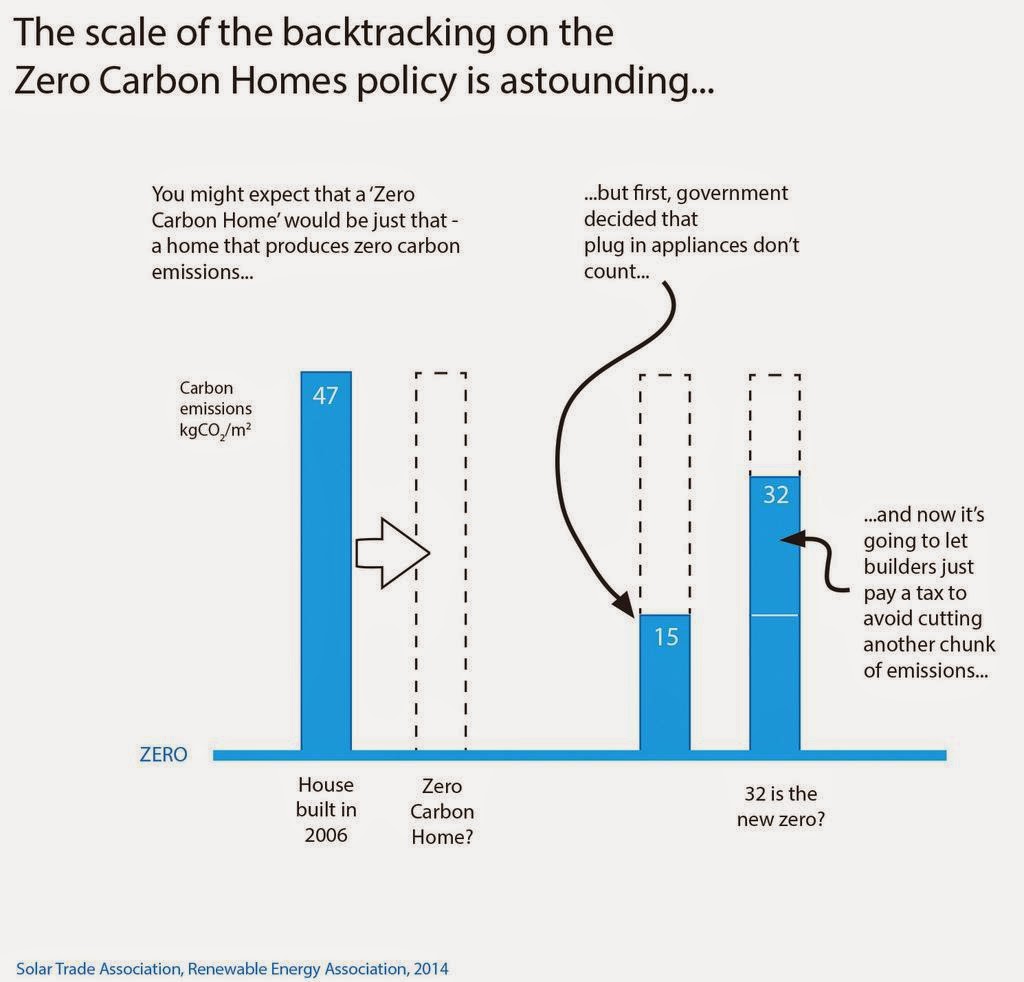 |
| From the Solar Trade Association & the Renewable Energy Association |
At the last Cabinet (Holding the Executive to account) meeting Lib Dem Councillor Christine Iredale submitted the following question.
" Because of the Government’s zero carbon housing policy developers will soon be required to pay for carbon reduction schemes in Kirklees. Would the Cabinet Member agree that this “allowable solutions” money could be used to further enhance the homes building policy Kirklees Liberal Democrats will propose later today? For example, it could help to pay for the installation of energy efficiency measures on the new homes, such as solar hot water panels.”
I was rather surprised the Lib Dems are wanting to talk about the Coalition's so called Zero Carbon Homes policy as it is widely regarded as a big disappointment by those concerned with reducing the carbon emissions of new homes. With the backtracking and the amendments to the policy a 'Zero Carbon Home' is one that emits carbon at 32kgC02/m2 as opposed to the 47kgCO2/m2 that a house built to 2006 Building Regulations emitted. You would be forgiven for thinking 'zero emissions' meant well 'zero emissions' but that is Government 'Newspeak' for you. It is really a measure of the success of the Home Builders Federation in getting the Government to lower standards and therefore their costs.
"allowable solutions" simply means opting out of high efficiency solutions for buildings by paying a sum of money to other carbon saving initiatives. Funding was, at one point, going to be destined for use by Local Authorities. This would have made a lot of sense, as it could have been targeted at those people in fuel poverty or on community renewables initiatives but now developers decide how they want to
use it and there is a lot of uncertainty over where it will end up and what it will be used for.
In Planning Resource magazine it stated,
Housebuilders will decide
how to meet carbon mitigation requirements under the zero carbon homes policy
rather than local authorities, the government has confirmed.
Colin
Morrison who is a director and head of sustainability at a building
consultancy Turley, said:
"Based on
our experience of allowable solutions projects and policies within emerging
local plans, this will come as a disappointment to local authorities as it
could have represented a significant source of funding for local carbon
reduction projects.
So unfortunately the
‘greenest government ever’, with a Department of Energy and Climate Change led
by a Lib Dem Minister, has failed to come up with the green goods yet again.
However
in the absence of effective policies coming out of the UK Govt, Kirklees Council can,
within the Local Plan, set its own standards for buildings erected on land the Council owns and they can be better
than those established by central government. Housing
built to a Passivhaus standard has very high insulation performance, low heating
demand , controlled ventilation and very low fuel bills. A Passivhaus social housing
development built in Oldham by Keepmoat has homes that are costing tenants no more than £20a year in fuel bills and the builders were trained by the Green Building
Company which is based in Huddersfield.
So I so will certainly be pushing hard for Passivhaus standards on Council land as part of the new Kirklees Local Plan. In the absence of good policy from central government we at least can do our best at the local level and show them the error of their ways.

